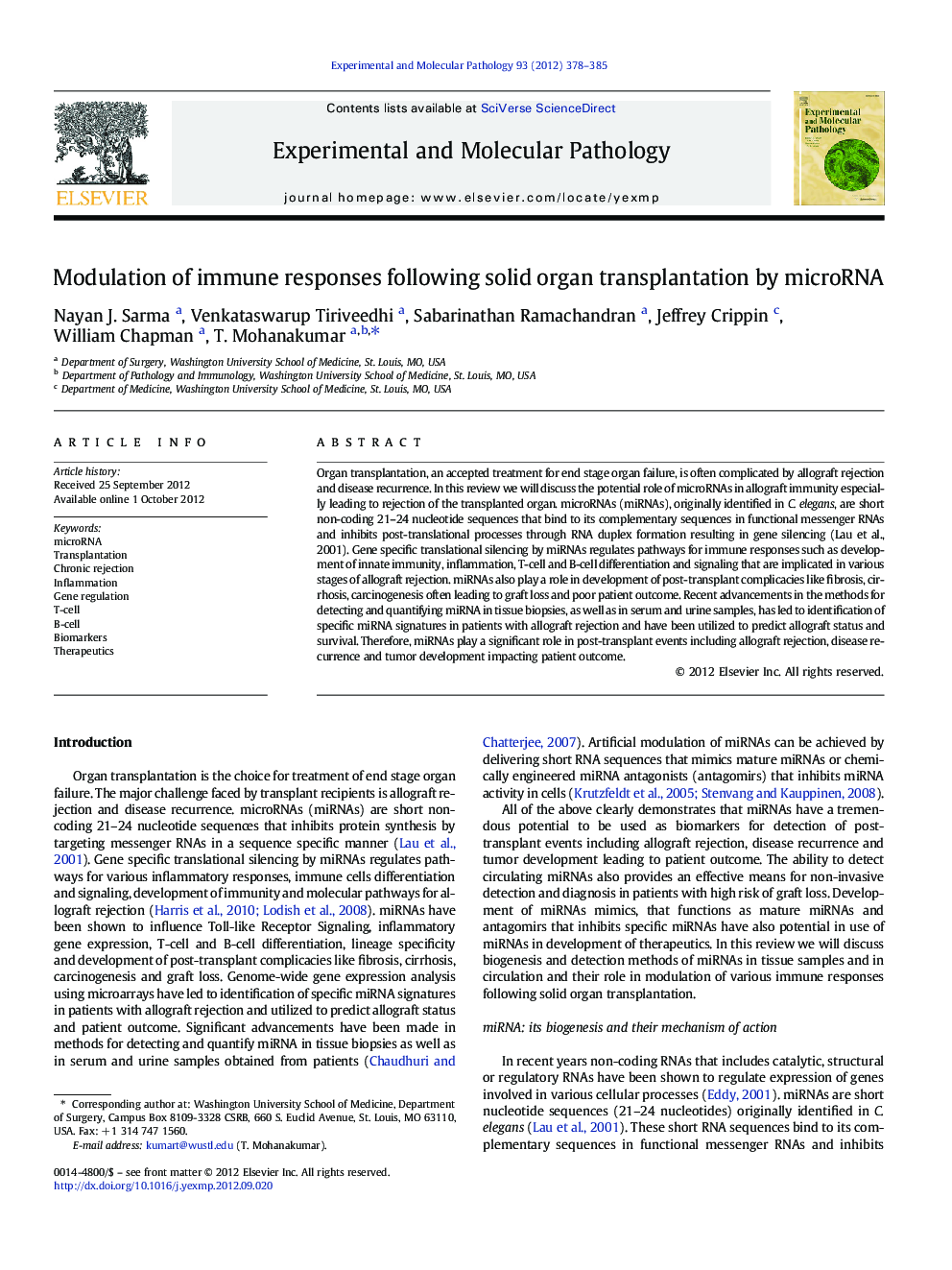| Article ID | Journal | Published Year | Pages | File Type |
|---|---|---|---|---|
| 2775181 | Experimental and Molecular Pathology | 2012 | 8 Pages |
Organ transplantation, an accepted treatment for end stage organ failure, is often complicated by allograft rejection and disease recurrence. In this review we will discuss the potential role of microRNAs in allograft immunity especially leading to rejection of the transplanted organ. microRNAs (miRNAs), originally identified in C. elegans, are short non-coding 21–24 nucleotide sequences that bind to its complementary sequences in functional messenger RNAs and inhibits post-translational processes through RNA duplex formation resulting in gene silencing (Lau et al., 2001). Gene specific translational silencing by miRNAs regulates pathways for immune responses such as development of innate immunity, inflammation, T-cell and B-cell differentiation and signaling that are implicated in various stages of allograft rejection. miRNAs also play a role in development of post-transplant complicacies like fibrosis, cirrhosis, carcinogenesis often leading to graft loss and poor patient outcome. Recent advancements in the methods for detecting and quantifying miRNA in tissue biopsies, as well as in serum and urine samples, has led to identification of specific miRNA signatures in patients with allograft rejection and have been utilized to predict allograft status and survival. Therefore, miRNAs play a significant role in post-transplant events including allograft rejection, disease recurrence and tumor development impacting patient outcome.
